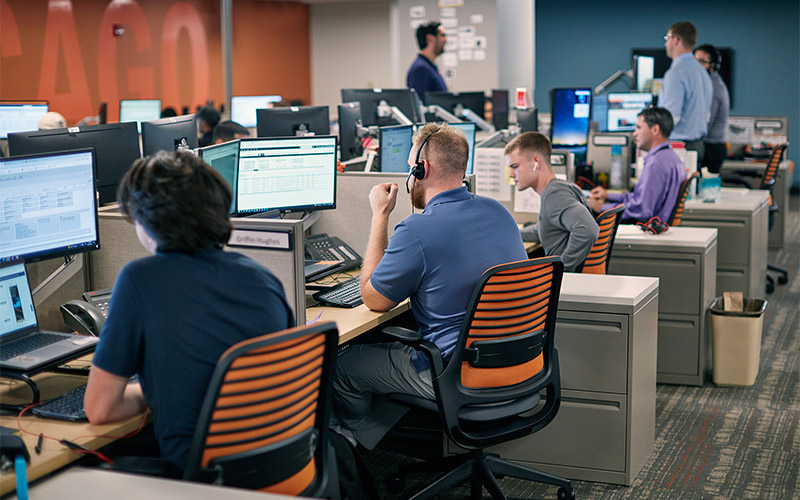Estimated reading time: 2 minutes
A freight broker who works for a logistics company acts as the middleman between shippers and carriers. They play an important part in the movement of freight, ensuring the smooth flow of goods from point A to point B.
Freight brokers can either work for a company, like Schneider, that provides third-party logistics services, or they can run their own business. In this blog, we'll focus on how to become a freight broker for a third-party logistics (3PL) provider.
5 steps to become a freight broker for a 3PL provider
1. Understand what a freight broker does.
Before you pursue a career as a freight broker, it’s a good idea to look into what the job entails to ensure it’s a good fit for you.
Typically, freight brokers are responsible for:
- Negotiating rates.
- Booking freight for carriers.
- Tracking shipments.
- Resolving issues.
At Schneider, for example, freight brokers work with different carriers – big and small – to find capacity to carry customer freight. They make sure products arrive at their destination on time and in a safe manner.
2. Meet freight broker requirements and qualifications.
Most companies require freight brokers to have a high school diploma or GED. You may also be required to have a college degree, depending on the company you work for and the experience level of the role.
There are specific skills and qualities that will help you be a successful freight broker, such as:
- Being personable.
- Being a strong communicator.
- Having excellent problem-solving skills.
- Having strong attention to detail.
- Being money motivated.
3. Find a freight broker role.
When it comes time to search and apply for your first freight broker position, there are several routes you can take to help you find the right opportunity.
You can find a freight broker job by:
- Searching online for companies that are hiring freight brokers.
- Attending job fairs to meet potential employers face-to-face.
- Networking with industry professionals on platforms like LinkedIn.
By leveraging these resources, you can find relevant job openings and apply for opportunities that interest you.
4. Complete freight broker training.
Once you land a freight broker role, you’ll most likely need to undergo comprehensive training before you start booking loads on your own.
The time it takes to become a freight broker can vary by company. At Schneider, for example, freight brokers take a two-week, in-person training course where they learn what it takes to be a freight broker.
If you work for a company like Schneider, you do not need to get a freight broker license, as you would if you started your own freight broker business.
5. Start your freight broker career.
After your training is completed, you can officially start working as a freight broker.
Some companies, like Schneider, will make sure new freight brokers are paired with an experienced mentor. This allows them to gain hands-on experience while also having a support system, which ensures they are well-prepared to work independently in the near future.






